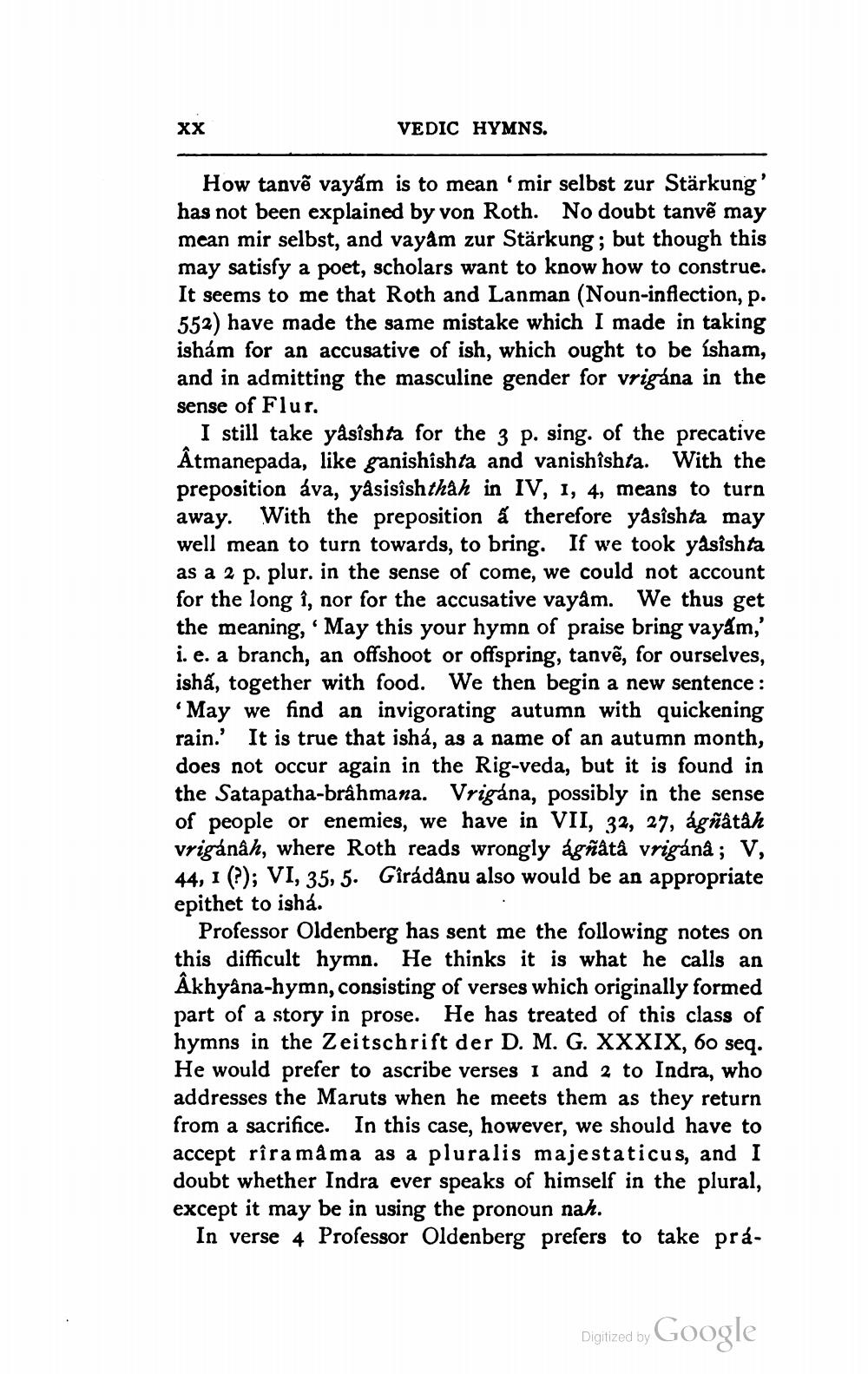________________
xx
VEDIC HYMNS.
How tanvē vayám is to mean 'mir selbst zur Stärkung' has not been explained by von Roth. No doubt tanvẽ may mean mir selbst, and vayam zur Stärkung; but though this may satisfy a poet, scholars want to know how to construe. It seems to me that Roth and Lanman (Noun-inflection, p. 552) have made the same mistake which I made in taking ishám for an accusative of ish, which ought to be asham, and in admitting the masculine gender for vrigána in the sense of Flur.
I still take yâsîshta for the 3 p. sing. of the precative Åtmanepada, like ganishishta and vanishishta. With the preposition áva, yasisîshthah in IV, 1, 4, means to turn away. With the preposition a therefore yâsîshta may well mean to turn towards, to bring. If we took yasishta as a 2 p. plur. in the sense of come, we could not account for the long î, nor for the accusative vayam. We thus get the meaning, 'May this your hymn of praise bring vayam,' i. e. a branch, an offshoot or offspring, tanvē, for ourselves, isha, together with food. We then begin a new sentence:
May we find an invigorating autumn with quickening rain.' It is true that isha, as a name of an autumn month, does not occur again in the Rig-veda, but it is found in the Satapatha-brâhmana. Vrigana, possibly in the sense of people or enemies, we have in VII, 32, 27, ágñatah vrigánåh, where Roth reads wrongly ágñata vrigána; V, 44, 1); VI, 35, 5. Gîrádanu also would be an appropriate epithet to ishá.
Professor Oldenberg has sent me the following notes on this difficult hymn. He thinks it is what he calls an Âkhyana-hymn, consisting of verses which originally formed part of a story in prose. He has treated of this class of hymns in the Zeitschrift der D. M. G. XXXIX, 60 seq. He would prefer to ascribe verses 1 and 2 to Indra, who addresses the Maruts when he meets them as they return from a sacrifice. In this case, however, we should have to accept rîra mama as a pluralis majestaticus, and I doubt whether Indra ever speaks of himself in the plural, except it may be in using the pronoun nah.
In verse 4 Professor Oldenberg prefers to take prá
Digitized by Google




